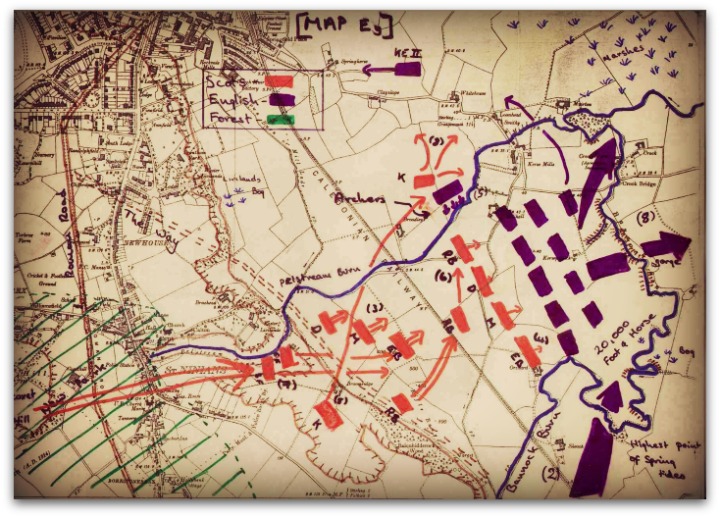
The more I learn about sobriety – the more I see two different fronts in my battle against addiction. The short-term (don’t drink) and the long-term (do recovery).
- Abstaining from the chemical alcohol. This is the battle for psychical sobriety.
- This happens when we stay sober one day at a time. We resist the whispers of addiction and overcome cravings.
- Learning to manage life without the behaviors of an addict. This is the battle for emotional sobriety.
- This happens when we work a recovery pathway, like the 12 steps of alcoholics anonymous. We learn a new way of life where alcohol simply doesn’t have any appeal.
Since I’m all about violent metaphors, I think you can see two military tactics at work.
Stage one is our Fabian strategy
The Fabian strategy is a military strategy where pitched battles and frontal assaults are avoided in favor of wearing down an opponent through a war of attrition and indirection. While avoiding decisive battles, the side employing this strategy harasses its enemy through skirmishes to cause attrition, disrupt supply and affect morale. Employment of this strategy implies that the side adopting this strategy believes time is on its side, but it may also be adopted when no feasible alternative strategy can be devised. [Wikipedia]
I think that describes living one day at time, “Just for today I’m not drinking.”
- There is no way to smash our addiction in one decisive battle. So we wear him day with small wins everyday we don’t drink.
- By removing the chemical, we disrupt addiction’s resources. We slowly render it less powerful.
- Time is on our side, relapse can happen but quality sober time gives us a better position to finally win the war.
Stage two is our Counter offensive.
A counter-offensive is the term used by the military to describe large-scale, usually strategic offensive operations by forces that had successfully halted the enemy’s offensive, while occupying defensive positions. [Wikipedia]
I think this describes the work of our recovery programs.
- We go right after addictions strongholds. The moral inventory strategically hits back at the enemies base camp – all those nasty parts of our personality that were exploited by alcoholism.
- The work must keep advancing to maintain the gains. That’s why my sponsor is keeping me on the attack. We want to smash the enemy to prevent future attacks.
What do you think?
This post may be me dorking out a little, but it was a fun connection for me. Leave a comment below to share your thoughts. Do you agree with the two main stages I listed above? What would you add to the descriptions?
Hi there. I used to fail hard when it came to abstaining. My cravings for alcohol were through the roof. I was the kind of late-stage alcoholic that didn’t need a reason to drink. I drank when I wanted to – all day every day. I’ve been to residential treatment 7 times in 11 years for alcoholism. My success – so far (I’ll have one year next week) – probably has to do with several things. I’m getting older, I’ve replaced alcohol and drinking with school, I’ve moved and live in a much more conducive environment to sobriety, and this may be the most important thing – I’m learning how to create my life around my needs and values. And it’s a HUGE deal.
Because I’m listening to my heart, and trying to align my life with the advice it’s giving me – things seem to be sorta falling into place. It’s odd, but it’s working and the one thing it’s told me again and again is to create new, small, healthy habits – like exercise, specific times for study, specific times to go outside – little things I can learn to expect from myself. There is nothing to fight anymore This isn’t to say that that sticking with my new habits is easy, because I’m finding some of them extremely challenging right now. Thank God, I’m not in a competition, right?!
That’s an awesome report, thanks for sharing. I’m a big believer in exercise – even though I’m backsliding a little lately.
Habits are such a powerful tool when used correctly. Great reminder.